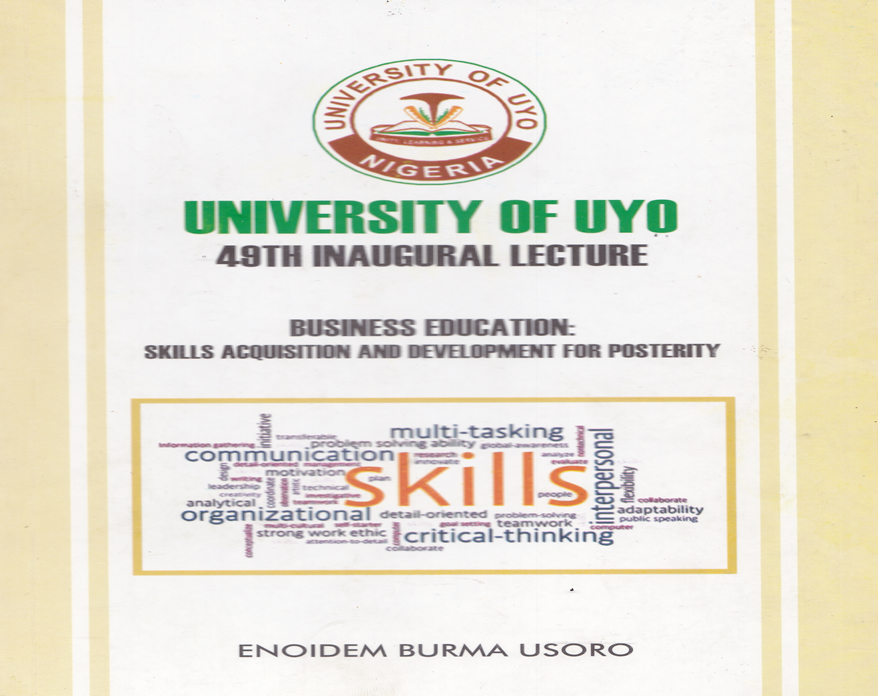Inaugural Lecture | Download

Business Education: Skills Acquisition and Development for Posterity.
By Prof. Enoidem B. Usoro
49th Inaugural Lecture of the University of Uyo,
Uyo, Akwa Ibom State, Nigeria
- Preamble
The lecture comprises eight major segments. They are: Concept of Business Education, Historical Development of Business Education, Role of Business Education, Skill Acquisition and Development, My contributions to knowledge, Key Challenges of Business Education, and Recommendations.
IntroductionThe training and development of humans have moved to the centre of the global development debate. It has become a common phenomenon for countries all over the world to incorporate the development of human resource in every sphere of their developmental programme (Usoro, 2004). Education builds the human capital, which is a key component in economic growth, technological capability and social transformation. People are percieved as the ultimate resource whose sustenance constitutes the all-encompassing goal of development with education as its foundation.
Literature is replete with the positive pay-offs and the multiplier effects of education on the individual, the family and the nation. Evidence also abounds to the effect that educational deprivation shuts individuals out of the mainstream of social, economic and political structures, limits their participations in modern labour force and locks them into relatively low productivity level (Usoro, 2004). Lack of education, whether, formal or informal, leaves individuals helpless and increases their dependency ratio. Therefore, it is pertinent to educate and develop individuals in various business approaches.
According to Frank (2000), informal sector activities are a heterogeneous mix, encompassing a wide variety of economic activities that tend to be ignored in normal economic statistical analysis. Conceptually, it is believed that informal sector activities encompass an extraordinary variety of skills and knowledge often outside the boundaries of formal education. However, skill acquisition can be accomplished through work experience or through education in the school workshops and laboratories. The key is to build a better means of integrating academic education, skill training, and work experience with precision on posterity.
Click on the Download Link to access the full lecture.